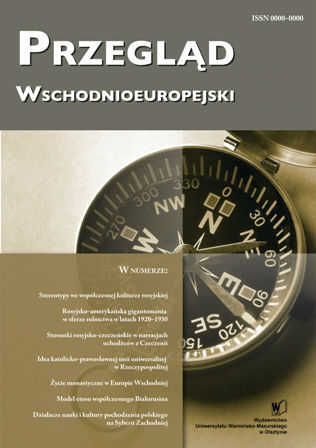Conflict Resolution Strategy as Political Integration Resource: Theoretical Perspectives on Resolving Ethnic Conflicts in the North Caucasus
Conflict Resolution Strategy as Political Integration Resource: Theoretical Perspectives on Resolving Ethnic Conflicts in the North Caucasus
Author(s): Maxim PopovSubject(s): Politics
Published by: Wydawnictwo Uniwersytetu Warmińsko-Mazurskiego w Olsztynie
Keywords: Conflict Resolution; Political Integration; Identity-based Conflict; Ethnic Conflict; North Caucasus
Summary/Abstract: This article explores the different approaches to study of conflict resolution strategyfrom a variety of interdisciplinary perspectives. It argues that conflict resolution strategy aspolitical integration resource is a necessary tool for overcoming deep-rooted ethnic conflictsin the instable region of North Caucasus. The author considers structural factors of protractedconflicts and emphasizes a destabilizing role of the re-politicization of ethnicity of a regionsociety in crisis. The concept of ethnic “identity-based” conflicts is the heuristic theoreticalmodel of exploring causes for increased ethno-confessional tensions in the North Caucasus.The article focuses on the ability of conflict resolution theory to de-escalate growing ethnoconfessionaltensions and transform protracted ethnic conflicts. Interdisciplinary approach toanalyzing conflict resolution strategy as political integration resource, while combining conflicttheory and neo-functionalistic paradigm, is the methodological basis of this research. The needto stimulate political integration is caused by moral and structural causes: from the ethical pointof view, the creation of an inclusive society is the fundamental societal goal; structural factorsare related to the need to reduce inequalities and differences leading to social fragmentationand escalation of ethnic conflicts. Among the socio-political conditions of the North Caucasianconflicts, the author calls social inequalities, civil identity crisis, authoritarian and ethnopolitical“renaissance”, economic polarization, “ideological combat” between the secular modernizationand fundamentalism. Discussing conflict resolution strategy as political integration resource,it is necessary to consider the following: 1) North Caucasian integration is a macro-politicalproject, the content of which is determined by issues of social security of multiethnic Russia;2) development of the North Caucasus after the end of armed ethnic conflicts shows theinadmissibility of structural demodernization, fundamentalism and cultural isolationism. Today,the North Caucasus remains a crucially geopolitical macro-region, as it forms the southernvolatile frontier of Russia. In this case, conflict resolution strategy must serve as preventive tool onthe conflict environment by way of providing structural solutions for deep-rooted socio-culturalproblems, transforming and rationalizing regional ethnic contradictions.
Journal: Przegląd Wschodnioeuropejski
- Issue Year: IX/2018
- Issue No: 1
- Page Range: 99-118
- Page Count: 20
- Language: English

